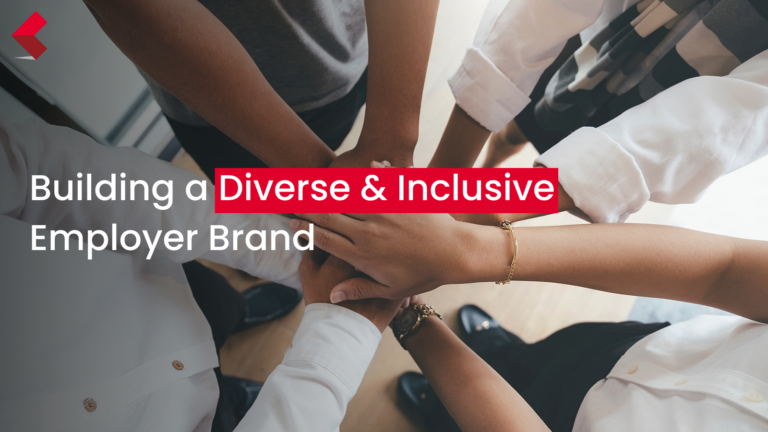Nearly every interview concludes in a similar way, and most of the candidates end up making the same mistake when answering it.
And that’s when the hiring manager asks, “Do you have any questions for me?”
While you prepare the questions you expect recruiters will ask, there is a high probability of missing preparing questions you can ask them. Most candidates fail to resist the temptation to say no, which makes them lose the job offer. However, they do not realise this may be one of the most important interview questions they answer. In fact, interviewers may ask this question to check whether you are serious about the job. It shows a lack of curiosity if you don’t have any questions. Therefore, never say “no” to the question. Have some well-researched questions for the interviewer to reflect your interest in the company and enable them to know more about you.
Learn how and what questions you can ask at the end of the interview and leave a positive impression on the recruiters’ or hiring manager’s minds.
Importance of Asking Questions From the Hiring Manager
You do not want to sound immature when the interviewer asks you whether you have any questions for them. Prepare in advance, or you will be taken completely off guard. We have compiled a list that hints at the importance of having a set of questions for the interviewer.
- Shows your engagement in the conversation
An interview is an opportunity for the interviewer to assess whether the candidate is the right fit for the job role. Not only this, but it also lets the candidate know about the company and job responsibilities. Asking questions during or at the end of the interview builds the flow of conversation in the correct manner.
- Exhibits your curiosity
When you ask questions, it shows your curiosity and excitement about the position. As a positive outcome, it makes the recruiter realise how interested you are in taking up the job, which works in your favour in the end.
- Represents your preparedness
When you come prepared with the questions, it shows the efforts you have put in to win the job role. Besides, it also indicates your seriousness toward the position.
- Showcases your knowledge
A candidate that mentions a recent activity or event that the company has been part of will always gain an edge over others. Therefore, staying updated on current news related to the organisation and mentioning it during the interview represents your knowledge. In short, you stand a chance to impress the recruiter instantly.
What Should You Ask?
- Can you tell me more about the day-to-day job responsibilities?
Seeking an answer to this question will give you a better insight into the job responsibilities and help you decide whether the job role is right for you. The better part of asking the question is understanding what employers will expect from you if you get hired.
- Is there any training within the role or company?
Show your commitment level toward acquiring the job role by asking whether the company offers or requires you to undergo specialised training. You don’t want a job that doesn’t offer learning opportunities, and asking this question will help you assess the possibility of working long-term with the organisation.
- What would I be expected to accomplish in the first six months or one year?
Asking this question will make the hiring manager feel that you are genuinely interested and will stay with the organisation for long. Also, it shows the potential employer that you are eager to contribute to the organisation’s goals and objectives.
- Can you tell me about the company culture?
This is a good question to ask at the end of the interview because it shows the recruiters that you are concerned about the financials and the company culture. From the response, you’ll learn whether the organisation focuses on employee happiness and its policies for the holistic benefit of the organisation.
- Where does the company see itself five years from now?
The recruiter’s response will tell you about the organisation’s progression plans. Additionally, you can obtain an idea about job security and learn about the upcoming projects that are expected to bring many opportunities.
Related Post: Preparation Is Key: How To Research A Company Before Your Interview
- Can you tell me about the team I would be working in?
The answer to the above question will help you understand the hierarchy and reporting structure. Furthermore, you can get to know more about the team and the working methods to prepare well for the upcoming role.
- What are the biggest challenges facing the company/industry?
By asking this question, send an unspoken message to the hiring manager that you are interested in knowing the roadblocks/challenges the company is facing. In simple words, show your interest in working with the organisation and be prepared to hand out your efforts to eradicate challenges.
- What do you enjoy the most about working here?
The answer will help you understand what the interviewer loves the most about the company culture. Though the question is personal, you could learn a lot about the company’s internal environment and working model. You may even get to know how the interviewer started their journey and progressed.
- What is the next stage in the process?
Asking this question will portray you as a candidate who is interested in moving to the next stage of the hiring process. Additionally, you may also get to learn about other potential candidates for the position.
Final Words
Are you all set for higher treks? By now, you probably are! Register the questions mentioned above in your mind before you appear for your next interview. Everyone prepares to get ahead of others, and you must outshine them.
Cornerstone Global Partner (CGP) Singapore can help you secure a job that matches your skill set and requirements. Get in touch with our team of experts, and you will receive assistance to flourish in your professional life.








